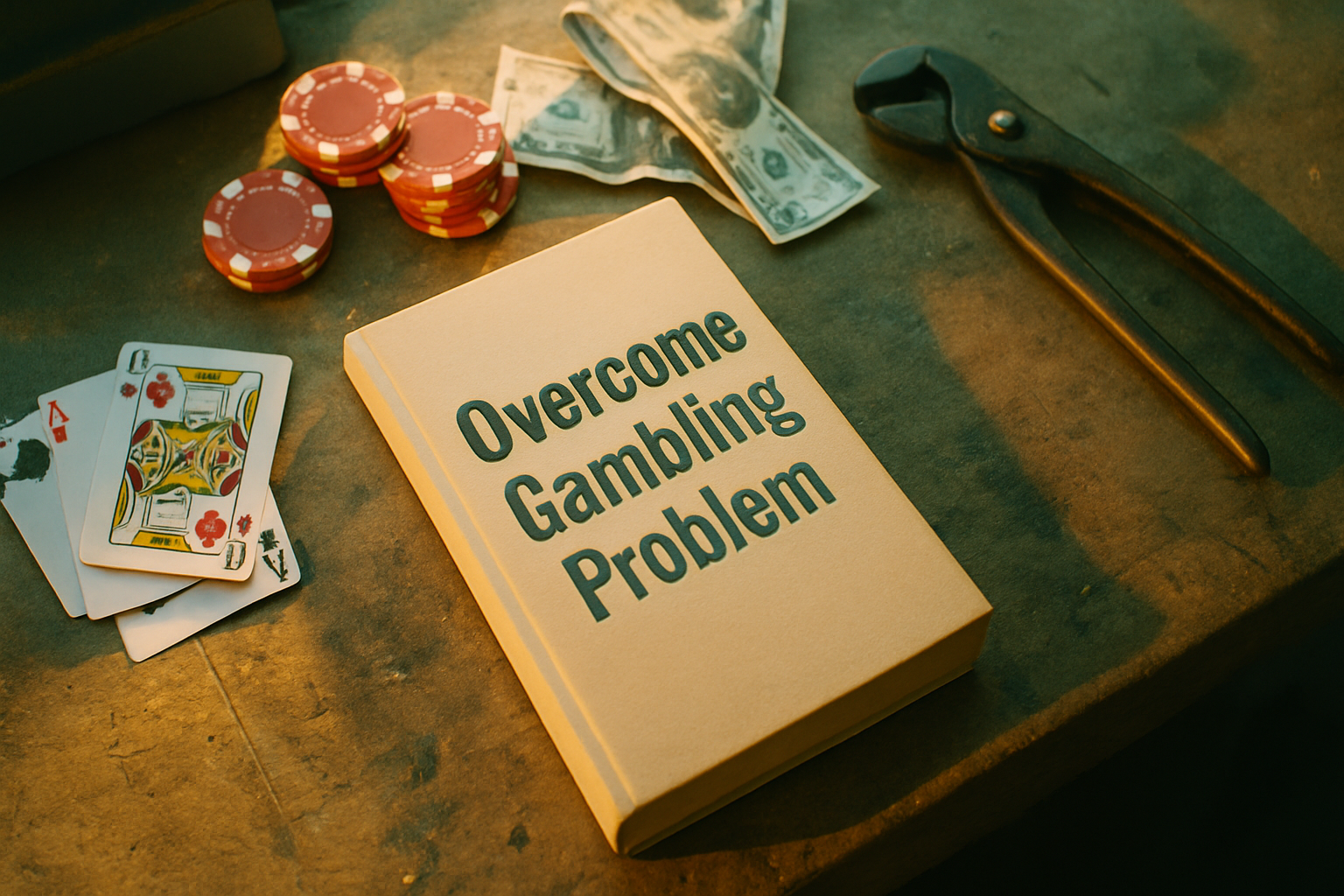Dealing with a loved one’s gambling addiction can be a challenging and emotional journey. As someone who has personally navigated the complexities of supporting a family member or friend struggling with gambling, I understand the importance of providing the right kind of support during such trying times.
In this article, I’ll share valuable insights and practical tips on how you can effectively support your loved one in overcoming their gambling problem. Supporting a loved one through their gambling struggles requires patience, understanding, and a non-judgmental attitude.
It’s crucial to educate yourself about the nature of addiction and its impact on individuals and their relationships. By offering empathy and encouragement, you can help your loved one feel understood and supported on their path to recovery.
Join me as we explore the various ways you can be a source of strength and support for your loved one as they navigate the challenges of overcoming a gambling addiction.
Understanding Gambling Addiction
Gambling addiction, often referred to as a “hidden illness,” can have severe consequences on individuals and their loved ones. It’s essential to grasp the complexities of this addiction to provide effective support to those struggling.
Understanding the nature of gambling addiction enables me to offer valuable assistance to my loved one during their journey towards recovery. Here are some key insights into gambling addiction that have helped me better support my family member:
- Gambling addiction is recognized as a behavioral addiction, characterized by the compulsive need to gamble despite negative consequences.
- Individuals with a gambling addiction may experience intense cravings to gamble, leading to excessive time spent on gambling activities.
- The addiction can result in financial strain, relationship difficulties, and emotional distress for both the individual and their loved ones.
By understanding the intricate nature of gambling addiction, I can approach my loved one with empathy and provide the necessary support as they navigate through the challenges of recovery.
Signs of Problem Gambling
Recognizing the signs of problem gambling is crucial in providing timely support to a loved one in need. Here are some indicators that may suggest a gambling addiction:
- Increased Secrecy: They may become secretive about their gambling activities, hiding evidence such as betting slips or receipts.
- Financial Strain: Persistent financial troubles, borrowing money frequently, or unexplained cash shortages could point to a gambling issue.
- Emotional Swings: Noticeable mood swings ranging from euphoria after a win to extreme distress or irritability when discussing gambling losses.
- Neglecting Responsibilities: Neglecting work, family, or social obligations in favor of gambling, leading to a deterioration in their overall well-being.
- Chasing Losses: Engaging in desperate attempts to recoup gambling losses by increasing the frequency or amount of bets placed.
- Lying and Manipulation: Regularly lying about their whereabouts, activities, or the amount of money spent on gambling, along with attempts to manipulate others to fund their habit.
- Preoccupation with Gambling: Constantly thinking about gambling, planning the next bet, or expressing excitement about the prospect of gambling again.
By being attentive to these signs, you can offer support and guidance to your loved one facing gambling addiction.
Supporting a Loved One
When supporting a loved one struggling with gambling, it’s crucial to express concern, provide emotional support, and encourage treatment effectively.
Expressing Concern
I suggest talking to your loved one in a caring and non-confrontational manner about your worries regarding their gambling habits. Express genuine care and understanding to create an open dialogue that shows your support without judgment.
Providing Emotional Support
When providing emotional support, ensure your loved one feels heard and validated. Offer a listening ear, show empathy, and acknowledge their struggles. Emphasize that you are there for them unconditionally, offering encouragement and reassurance throughout their recovery journey.
Encouraging Treatment
Encouraging treatment is vital for your loved one’s recovery. Gently suggest seeking professional help, such as therapy or support groups, tailored to address gambling addiction. Highlight the benefits of treatment, such as regaining control over their life and rebuilding relationships.
Emphasize your continuous support and willingness to assist them in seeking help.
Self-Care for Friends and Family
As a friend or family member supporting a loved one struggling with gambling, it’s crucial to prioritize self-care to maintain your own well-being. Here are some essential self-care tips to help you navigate this challenging situation effectively:
- Set Boundaries: Establish clear boundaries to protect yourself from being emotionally drained or taken advantage of. It’s important to differentiate between offering support and enabling destructive behavior.
- Seek Support: Don’t hesitate to seek support for yourself. Joining support groups for friends and family of individuals with gambling addiction can provide you with a safe space to share experiences and gain valuable insights.
- Practice Mindfulness: Stay present in the moment and practice mindfulness techniques to manage stress and anxiety. Taking care of your mental health is key to being a source of strength for your loved one.
- Engage in Hobbies: Dedicate time to activities you enjoy and that bring you joy. Engaging in hobbies can serve as a healthy distraction and a way to recharge your emotional batteries.
- Educate Yourself: Continuously educate yourself about gambling addiction. Understanding the nature of the addiction can help you provide more effective support and communicate empathetically with your loved one.
- Take Breaks: It’s important to take breaks when needed. Remember that you are not responsible for your loved one’s choices, and it’s okay to step back and take care of yourself when the situation becomes overwhelming.
By prioritizing self-care, you can better support your loved one while safeguarding your own well-being throughout their recovery journey. Remember that taking care of yourself is not selfish but essential for being a pillar of support for those you care about.





